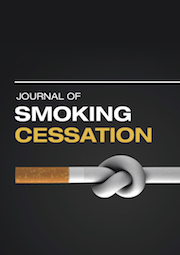Article contents
Smokers who seek help in specialized cessation clinics: How special are they compared to smokers in general population?
Published online by Cambridge University Press: 22 August 2013
Abstract
Introduction: Patients of specialized nicotine dependence clinics are hypothesized to form a distinct subpopulation of smokers due to the features associated with treatment seeking. The aim of the study was to describe this subpopulation of smokers and compare it to smokers in general population.
Material and methods: A chart review of 796 outpatients attending a specialized nicotine dependence clinic, located in Toronto, Ontario, Canada was performed. Client smoking patterns and sociodemographic characteristics were compared to smokers in the general population using two Ontario surveys – the Ontario Tobacco Survey (n = 898) and the Centre for Addiction and Mental Health Monitor (n = 457).
Results: Smokers who seek treatment tend to smoke more and be more heavily addicted. They were older, had longer history of smoking and greater number of unsuccessful quit attempts, both assisted and unassisted. They reported lower education and income, had less social support and were likely to live with other smokers.
Conclusions: Smokers who seek treatment in specialized centers differ from the smokers in general population on several important characteristics. These same characteristics are associated with lower chances for successful smoking cessation and sustained abstinence and should be taken into consideration during clinical assessment and treatment planning.
- Type
- Articles
- Information
- Copyright
- Copyright © The Author(s) 2013
References
- 4
- Cited by


